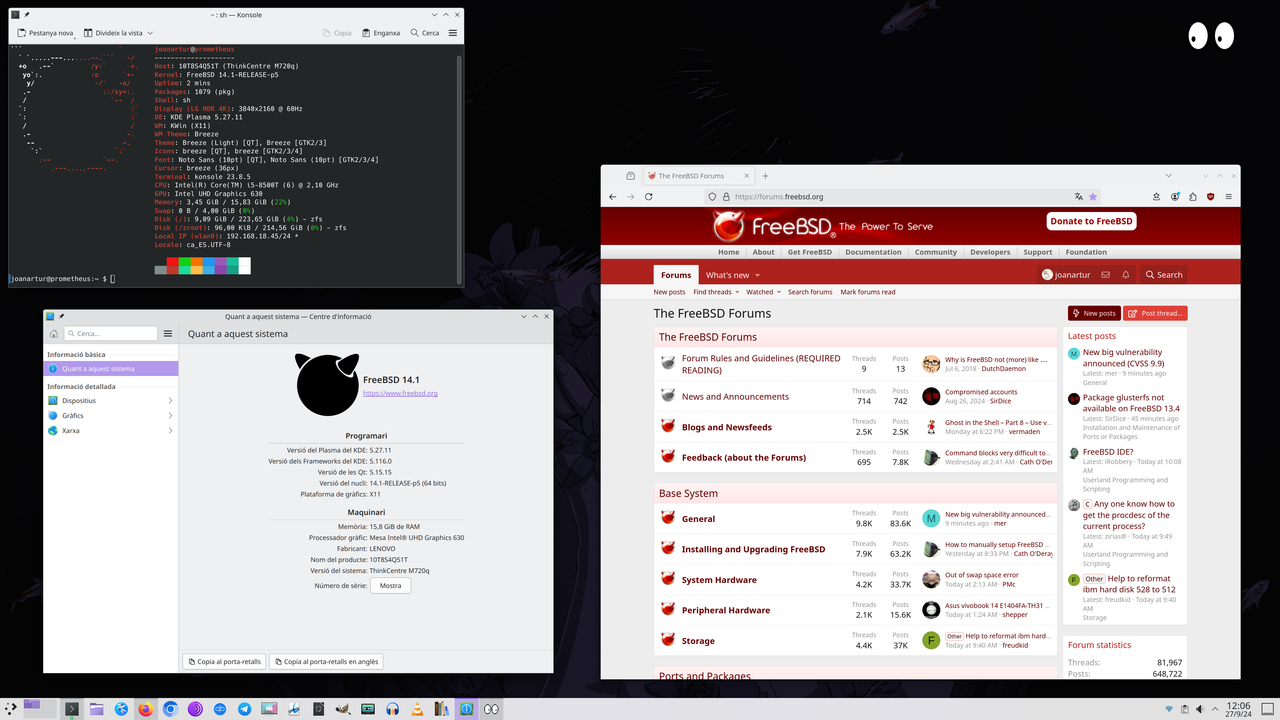Just a nerd who wanted a straightforward, mostly logical system that doesn't take up like 20 gigs on a drive. Past couple versions of Windows NT, Osx and most Linux distros seem too overcomplicated for my principles when FreeBSD and OpenBSD work very well while being a fraction of the size.
"Why not a simpler Linux distro?"
Simpler Linux distros still feel a lot more chaotic and less stable for me than BSD. They also feel slower and acpi seems to act up more on laptops from an era when they still made them right.
And don't tell me that something like linux-libre would be a cleaner approach than the without_sourceless option.
"Why not OpenBSD?"
Also cool, but i miss extras like wine support and the linuxulator. Wine allows me to run office 97 and some classic games i grew up with.
"Why office 97? lol"
Ties up to the first point. It only uses a few megs of ram, new office and libreoffice just can't touch that. And i'd believe that 97 ain't spyware if someone told me.
So after this rant: Guess i just want to say thank you for this great os. Daily driver for over a year, only crashed 2 times and it was my fault for the most part. Of course there are smaller problems, i'm wrestling with automount currently and i may make a post if i really can't get it right by myself
"Why not a simpler Linux distro?"
Simpler Linux distros still feel a lot more chaotic and less stable for me than BSD. They also feel slower and acpi seems to act up more on laptops from an era when they still made them right.
And don't tell me that something like linux-libre would be a cleaner approach than the without_sourceless option.
"Why not OpenBSD?"
Also cool, but i miss extras like wine support and the linuxulator. Wine allows me to run office 97 and some classic games i grew up with.
"Why office 97? lol"
Ties up to the first point. It only uses a few megs of ram, new office and libreoffice just can't touch that. And i'd believe that 97 ain't spyware if someone told me.
So after this rant: Guess i just want to say thank you for this great os. Daily driver for over a year, only crashed 2 times and it was my fault for the most part. Of course there are smaller problems, i'm wrestling with automount currently and i may make a post if i really can't get it right by myself


